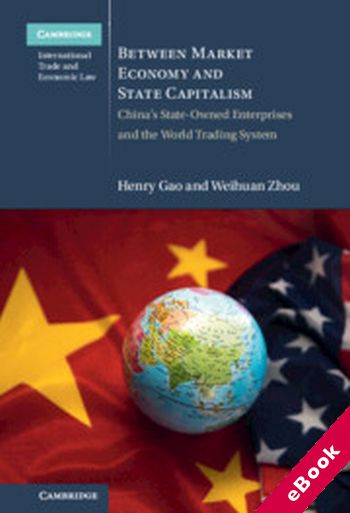
The device(s) you use to access the eBook content must be authorized with an Adobe ID before you download the product otherwise it will fail to register correctly.
For further information see https://www.wildy.com/ebook-formats
Once the order is confirmed an automated e-mail will be sent to you to allow you to download the eBook.
All eBooks are supplied firm sale and cannot be returned. If you believe there is a fault with your eBook then contact us on ebooks@wildy.com and we will help in resolving the issue. This does not affect your statutory rights.
One major issue facing the world trading system today is how to deal with the challenge of China's state capitalism. Many commentators believe that the existing WTO rules are insufficient and thus new rules are needed. This book challenges such conventional wisdom. Through meticulous studies and fresh analysis of the commitments in China's WTO accession package, existing rules on state capitalism in WTO agreements, and recent attempts to make new rules on these issues at the bilateral, regional and multilateral levels, this book argues that existing WTO rules, especially those on subsidies, coupled with China-specific rules in its accession protocol, do provide sufficient tools to counter China's state capitalism. This book also discusses the reasons for the lack of usage of these rules, and provides concrete policy suggestions on how these rules may be used, as well as how to conduct constructive negotiations on new rules in the WTO and beyond.